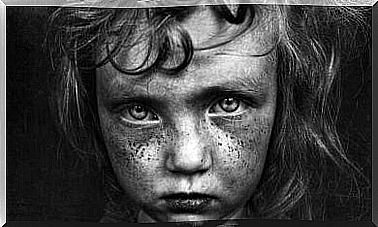Psychological Violence: Like Drops Of Water On A Stone

When we think of the word ‘abuse’, the image of physical violence immediately comes to mind. But physical violence is only one form of violence. In this article, we are going to talk about another form of violence that can occur simultaneously or on its own. We are talking about psychological violence.
Manipulation, humiliation and insults are more common than a physical beating. But these are not condemned or talked about. Why is that? The reasons vary. Some are the same as physical violence, such as a feeling of shame in the victim. And other reasons apply only to psychological violence, such as the difficulty of detecting the abuse due to the absence of physical signs.
Psychological violence indoors and outdoors
Psychological violence can mainly take place indoors, but also at work, in the media and in society in general. In many cases without even realizing it, without being able to detect the ‘subtlety’. But the same cannot be said for the damage it causes.
Psychological aggression has often been going on for a long time and is like small drops of water on a stone. It causes continuous erosion that is difficult to glue. Erosion that is difficult to observe if we only observe it in the moment.
Something similar happens with psychological violence. The aggressor slowly but surely creates fear and dependence in the head of the victim.

While this type of aggression can take place in any environment, the most common is the family environment, especially within a relationship. One person makes the other feel worthless. He ridicules, hurts, judges or threatens the other in front of other people.
The victim slowly loses the will and courage to go out, visit certain places, maintain friendships, see their parents and relatives, etc. Dependence is born from this type of violence. The victim feels completely worthless. As a result, he becomes dependent on his partner for everything.
Psychological violence in children
It is generally believed that applying excessive discipline to children leads to strong and disciplined adults. But this is not the case. From such a strict upbringing come only frustrated children, adolescents and adults, full of complexes and very low self-esteem.
Parents who mentally attack their children don’t realize that they are forging behaviors that they can expect back when their children are older. Especially during adolescence, which in itself is a complicated period for them.
Why is psychological violence not reported?
To answer this question, we need to keep several factors in mind and pay attention to specific circumstances. But there are also some common or frequent patterns in this type of situation.
To begin with, it is not reported because the victim is often unaware of the violence. The attacker is so ‘ precise and calculating’ that it won’t be picked up as a bad thing. In contrast, it is often thought that it is part of it, that it is normal and even expected. You often hear the typical ‘ he does it because he loves me’ .
On the other hand, if the person has noticed the other person’s behavior, it is also very difficult to prove (unlike physical violence). In the majority of cases, family and friends of the victim notice changes in behavior or attitude on both sides. In addition, part of the verbal can take place in the social context.

Also, psychological violence is not reported out of fear. Sometimes the victim simply has to return home and continue living with the abuser for fear that something will happen to their children or to a member of the family.
Finally, in many countries there is a lack of commitment from the authorities and a lack of legislation regarding domestic violence, both in the case of physical violence and in the case of mental violence, which makes it very difficult for victims to understand the situation. to indicate.
What can you do to escape the abuse?
A good option for victims to change the situation is to contact people who have experienced a similar situation. There are organizations and foundations that can help them. If you yourself are a victim of psychological violence, distance yourself as much as possible from the abuser so that the problem does not have tragic or irreparable consequences.
Also therapy and talking to people who are close can be exactly what the victim needs to get over it. With the support of loved ones and the lessons their experiences have learned, it will be easier to look ahead. Let us also not forget that increasing the self-confidence of victims can make them stronger against this type of aggression.









